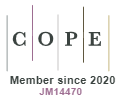Human evolution and sitting posture: basis for the physiotherapist
DOI:
https://doi.org/10.5585/conssaude.v8i4.1979Keywords:
Evolução, Ergonomia, Postura.Abstract
Introduction: The human posture is an important object of physical therapy researchs. To purchase its current complexity, the human postural pattern has undergone major changes throughout history. Therefore, knowing the history allows the therapist to understand the posture occupational diseases, such as those arising from the prolonged permanence of the person in the same position. Objective: To understand the common sequelae occurrence caused by different postures and human relations with their environment, their work and the social and cultural aspects involved in this relationship. Methods: critical review of literature in books, articles, internet, magazines, periodicals and theses on the topic. Results: the sedentarization of man, and his permanence on the seated position for long periods, has become an issue of extreme importance in the field of physiotherapy. Conclusion: The expression needed further studies to develop preventive measures - such as physical activity programs, etc - and to reduce the adverse effects of this posture.Downloads
Downloads
Published
2010-03-03
How to Cite
1.
Contesini AM, Moreira MC dos S, Amorim CAP de, Rebelo C de F, Caromano FA. Human evolution and sitting posture: basis for the physiotherapist. Cons. Saúde [Internet]. 2010 Mar. 3 [cited 2025 Jun. 20];8(4):677-83. Available from: https://periodicos.uninove.br/saude/article/view/1979
Issue
Section
Artigos
License
Copyright (c) 2009 ConScientiae Saúde

This work is licensed under a Creative Commons Attribution-NonCommercial-ShareAlike 4.0 International License.
Views
- Abstract 625
- PDF (Português (Brasil)) 915








